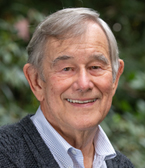Earlier this week, my colleagues and I reported, as part of the 2015 Education Next survey of public opinion, that the level of support for the Common Core had slipped over the past two years from about two thirds to about half of the public. Yet opponents still number only about a third of the public, with the rest offering no opinion one way or the other.
Federalism, Urban
Testing and accountability have become a focal point of the congressional debate over the new federal education bill designed to replace No Child Left Behind (NCLB), originally scheduled to expire in 2007. The Senate and the House have each passed a bill revising the law, but disagreement persists on a key testing provision.
Last Thursday, the president urged Congress to pony up roughly $200 billion in taxpayer money to "provide more jobs for teachers [and] more jobs for construction workers" and more money to carry out other state and local activities. He urges Congress to spend this money even after handing out hundreds of billions of dollars for similar purposes as part of the 2009 stimulus package, as well as a score and more billion dollars again in 2010.
Stockton, California, recently became the largest American city in history to declare bankruptcy, having incurred a debt as high as $1 billion. Since 2010, seven U.S. cities, towns, or counties have filed for bankruptcy, while many more teeter on the brink of insolvency. Not since the Great Depression has America witnessed such grand-scale municipal bankruptcies. The Global Debt Crisis looks at this growing crisis and its implications for governance and federalism, both domestically and internationally.
What is the price of federalism? Does it result in governmental interconnections that are too complex? Does it create overlapping responsibilities? Does it perpetuate social inequalities? Does it stifle economic growth? The book addresses these questions by developing two theories—functional and legislative—of the workings of the American federal system.
Identifies the defining role of the president, the secondary role of Congress, in the making of foreign policy.


